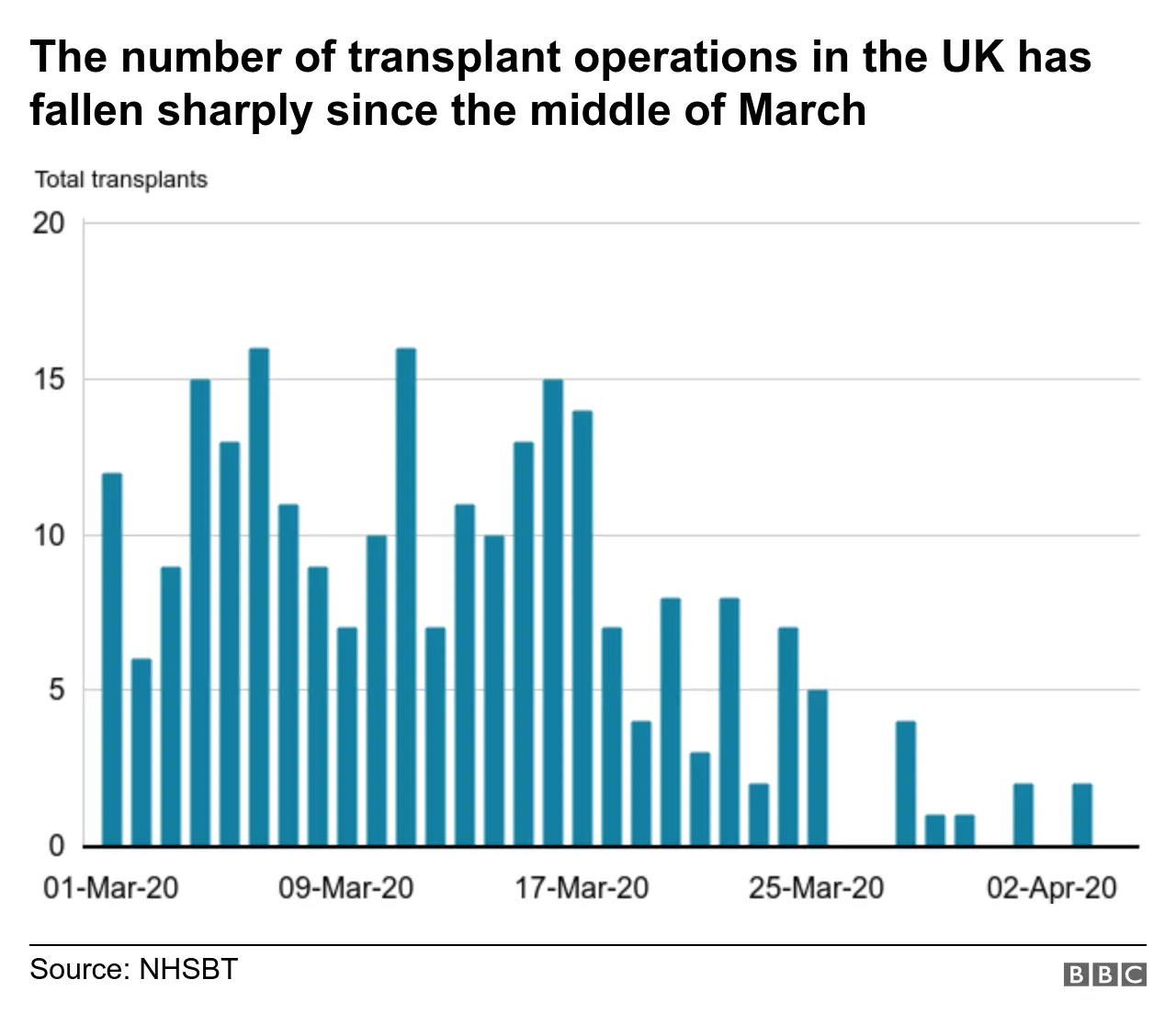Coronavirus pressures 'put organ transplants at risk'
 BBC
BBCThe UK's organ transplant network could be forced to shut down as a result of the coronavirus outbreak, the body that runs the scheme is warning.
One factor is the pressure on intensive care beds, according to NHS Blood and Transplant (NHSBT).
But there is also the risk to transplant patients, who have their immune systems suppressed so their bodies don't reject new organs.
Since the beginning of March the number of transplants has fallen dramatically.
This time last year more than 80 transplants were being carried out each week in the UK.
But now just a handful of the most urgent cases - mainly heart and liver - are going ahead.
Pressure on intensive care
Prof John Forsyth, medical director for transplant and organ donation at NHSBT, admits the system may struggle to operate while the epidemic continues.
"When I hear from other countries who have been at the centre of this Covid pandemic, they have got to the point where no transplant is possible in certain regions at all.
"We may get to that point, and we may get to that point in the next days or weeks.
"But we are working very hard to keep organ donation and transplant open for as long as possible, accepting the safety of our patients is paramount."

The pressure Covid-19 cases are exerting on intensive care units is one important factor.
Both donors and recipients need that high level of care, so fewer potential donor families are being approached.
But surgeons are also understandably reluctant to treat immuno-suppressed transplant patients anywhere near those with the highly infectious Covid-19.
This is the dilemma for those like Ana-Rose Thorpe, from Manchester, who is waiting for a liver transplant.
Now aged 29, Ana-Rose has lived with hepatitis almost her entire life after contracting it as a baby.
The disease has taken its toll and now her liver is failing and she is in desperate need of a transplant.
'I could get sicker and sicker'

"Having to go into hospital while there are coronavirus patients there is very worrying," she says.
"This is a window of opportunity for a transplant without the coronavirus.
"Whilst my body could withstand the transplant, the longer I'm not being monitored, not being seen as often as I was, the longer I leave it, I could just get sicker and sicker.
"I feel like it's patients that are already on the transplant list, patients waiting for other operations, we have just been swept aside.
"Its not any fault of the NHS, no-one can help what is going on.
"They are trying to make it safe for us but we are still terrified of going into hospital.
"It's my life - it is a matter of life and death," Ana-Rose says.
'Balance of risk'
Vanessa Hebditch, director of policy at the British Liver Trust, says this is a very worrying time for everyone.
"The outbreak means that unfortunately many intensive-care unit beds across the United Kingdom are now being used to care for those affected by this pandemic.
"The British Liver Trust understands that at the moment liver transplant centres will remain open, and urgent transplants are still taking place.
"However, transplant recipients are considered to be an extremely high-risk group should they develop coronavirus.
"Whilst, we are concerned that some people who need a transplant may have this delayed because of this unprecedented crisis, the balance of risk needs to be assessed and vulnerable patients need to be protected from contracting the virus."
Each year 450 patients die before their transplant can be carried out.
The sad reality is that many more will die if transplants cease altogether - another hidden cost of the coronavirus emergency.
